Request Information
Ready to find out what MSU Denver can do for you? We’ve got you covered.
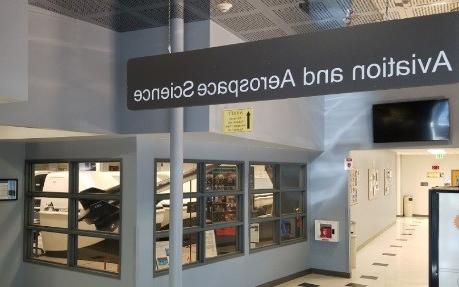
The Aviation & Aerospace Science Department hosts an extensive array of laboratories for simulation and hands-on training. Our Aeronautics and Aerospace Systems Laboratories (AAS Labs) consist of nine state-of-the-art technology facilities for enhanced academic and applied knowledge mastery as related to the student’s chosen field of study. The AAS Labs support all aspects of our academic and technology programs – including flight simulation training, advanced avionics functions, air traffic control operations, space satellite mission operations and systems engineering, aerospace physics, UAV/UAS, and aeronautics and aerospace data analysis.
The AAS Labs include aeronautics and aerospace technologies focused on providing students real-time / real-life simulation experiences integrated with traditional classroom learning. The laboratories include the general aviation Robert K. Mock Flight Simulation Lab, the Astronautics Simulation Lab, the Satellite Engineering Lab, the Air Traffic Control Lab, the Jet Lab, the UAS/UAV Lab, the Aeronautics Simulation Lab, the Balloon Sat Lab, and the Aerospace Operations Lab.
The Flight Simulation Laboratory is comprised of individual flight training devices (FTDs) and simulation systems for general aviation aircraft and avionics. The Flight Simulation Laboratory includes 10 single engine Cessna 172s, five Cessna 172XP G1000 simulation systems, five Piper Seminole light-twin simulation systems, and two Beech 1900D turboprop simulation systems.
All the single engine, light-twin, and turboprop FTDs are configured with modern GPS units. Specific FTDs include Garmin 1000 GPS and Avidyne Entegra “glass cockpit” advanced technology. The AASL also supports advanced weather planning and forecasting technologies, flight plan filing and IFR chart services, and a variety of other supporting flight planning resources. In particular, the AAS Labs proudly hosts the Jeppesen-Boeing Flight Planning area, providing resources for preparation and filing flight plans, printing of navigation charts, maps, approach plates, and other planning materials for student use.
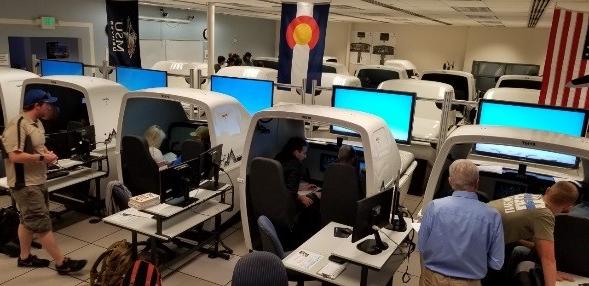
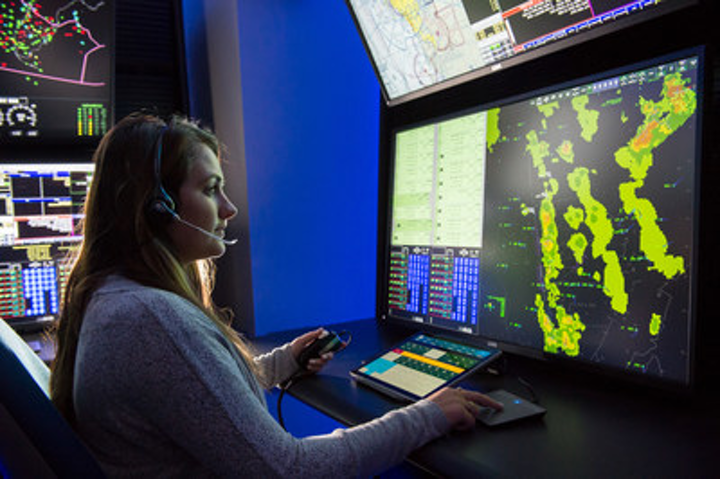
The AAS Labs include an 18-controller position Air Traffic Control (ATC) system providing simulation of an operational air traffic control radar facility. The ATC Laboratory is recognized as an FAA Collegiate Training Initiative (AT-CTI) school, a specialized training designation given by the FAA only to select higher education institutions.
The AAS Lab also features corporate and commercial jet simulation and training systems. The Cessna Mustang business jet is featured with a full 220-degree wrap-around theater-style visual system. Built to the exact Cessna C510 configuration, the corporate jet also includes the full Garmin 1000 multifunction glass flight deck.
The Bombardier Canadair 700 Regional Jet (CRJ700) is also featured, simulating the entire CRJ 700 model aircraft. It is additionally equipped with advanced training features covering all the aircraft’s systems with live touch screens for in-depth training on all aspects of the aircraft’s subsystems. A full CRJ 700 flight model is complemented by the entire suite of the aircraft’s avionics and flight controls. Also included are four FMS tactile units that interface with CRJ training software in the Jet Lab.
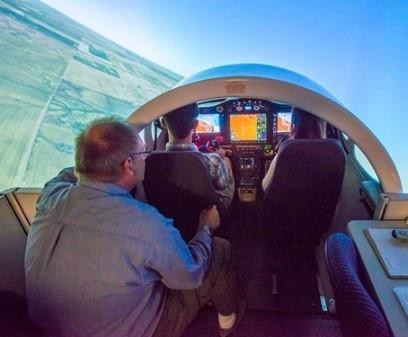
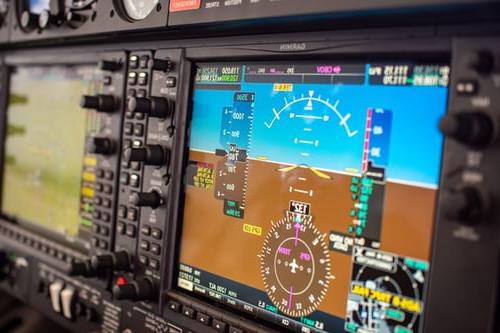
As part of the AAS Labs, the Aeronautics Simulation Lab provides an advanced technology platform for training and simulation of advanced avionics and navigation systems, glass flight deck systems, and Flight Management Systems (FMS) found on technically advanced aircraft. Glass flight deck training platforms include the Garmin 430/530 GPS systems, Garmin 1000 systems, Avidyne Entegra systems found on many general aviation aircraft, and Flight Management Systems (FMS) found in common commercial jet aircraft.
The Aerospace Operations Lab is a fully functioning Satellite Mission Operations Center (MOC) and provides students real-world hands on training for monitoring, controlling, and tracking of satellites, A custom technology platform for both simulated and actual operational satellite control, and a satellite data analytics network are unique resources available to students in the MOC.
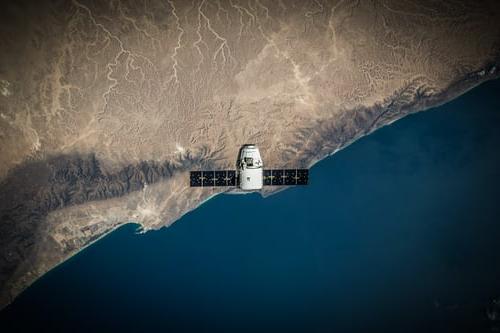

The ASL provides commercial space simulation technology and is an official training center for AGI Corp. Systems Toolkit (STK). The lab features 18 student computer stations with dual displays as well as dual projection of the displays from the instructor station. The space commercialization simulation technology provides a programming platform for developing “what-if?” scenarios for a variety of earth- and space-based projects and is an industry standard application for large and small aerospace companies globally.
Additional AAS Labs resources provide technology for building and flying “balloon satellites” for field data collection and subsequent analysis. High altitude balloon payloads are designed and built by students for launch each semester. Research papers and presentations are a product of the design/build/launch/retrieval/analysis process. This provides the opportunity for students to fly independent study research projects.
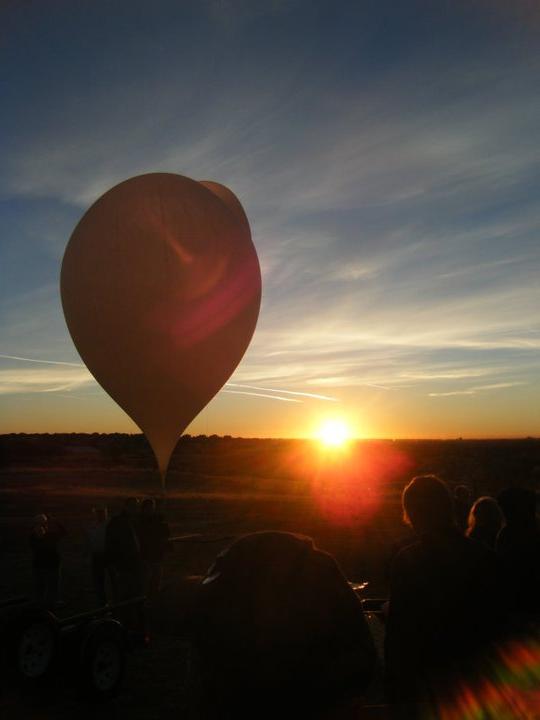
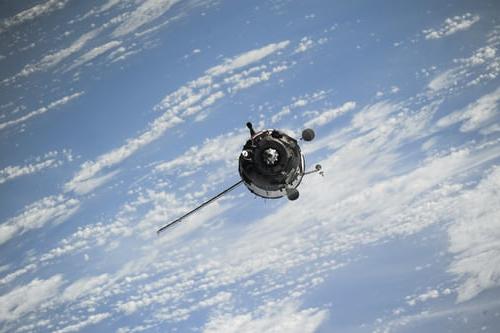
The SEL Lab provides students a laboratory environment to work with the local aerospace community on company-driven specific projects, including new design specifications, satellite programming and operations activities, and a variety of subsystems projects. Students typically shadow aerospace engineers in completing design work, script/program writing, simulation analysis, and launch planning and logistics.
The UAS Flight Training Laboratory provides students access to UAV/UAS flight simulation technology for introductory flight skills development. Additional UAS Lab resources include an inhouse flight cage, ground control station operations, and extensive data collection/analysis toolsets and applications. A formal structure of coursework is offered to interested students for acquiring a certificate in UAS Operations.
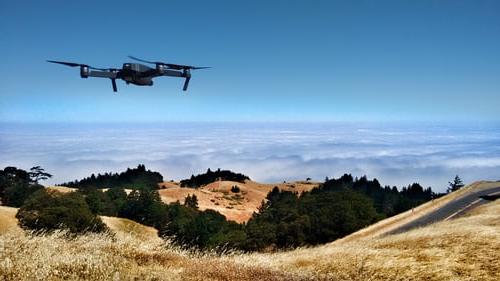
For a tour of our department, our state-of-the-art learning laboratories, or informational materials, please contact the AVS Front Office Program Coordinator, or the AAS Laboratories Director through the main office at 303-615-5287.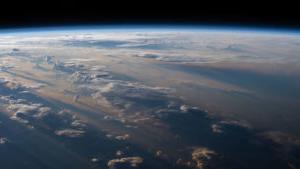
Thank you for your interest in the Aviation and Aerospace Science Department at MSU Denver.
Prospective students, parents, alumni, and industry partners are welcome to submit inquiries to the departmental email (located on the right side of this section).
Campus Address:
Aviation and Aerospace Science Department
Metropolitan State University of Denver
1250 7th Street – Seventh Street Classroom
Campus Box 30
PO Box 173362
Denver, Colorado 80204